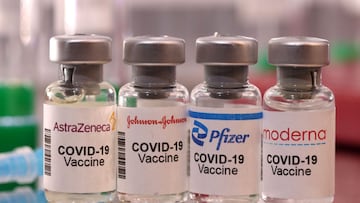How long after having covid-19 can you get your booster vaccine?
With nearly a million or more people being infected with covid-19, many are wondering how long they should wait after infection to get their booster shot


While new data is showing the booster does not necessarily slow down the transmission of the more contagious Omicron variant, it has been shown to reduce the severity of illness. However, for millions avoiding ineffective has not been possible before they were able to get their third shot.
When is it safe to get your booster after contracting Omicron?
"You can get it as soon as you are done with your symptoms and you have completed your recommended isolation," said Dr. Darien Sutton on Good Morning America. Dr. Sutton noted that while "the isolation guidelines say you can shorten [your isolation period] to five days" he still recommends waiting until ten days have passed until you get your shot.
Does the booster protect against infection?
Virologists at the University of Saskatchewan Angela Rasmussen told CBS News: The National that the booster "may not protect you from being infected in the first place but they will rapidly clear that infection before it can make you sick, in many cases." The Omicron variant is proving to be one of the most contagious viruses identified by scientists, and Rasmussen mentioned that ensuring your immune system can get a kickstart on fighting the virus may be able to reduce the days you are contagious.
How long are you contagious with the Omicron variant?
A new study from Harvard University that examined rates of transmission within the NBA to better understand the viral loads and period a person is contagious with the virus is currently under peer view. The preliminary findings of the paper show that Omicron cases are typically shorter than cases associated with Delta (9.87 versus 10.9 days) and that some people were still contagious after five days. To ensure that people do not leave isolation prematurely and to avoid an overly long isolation period, workplaces and other organizations could implement a testing program.
Related stories
One of the authors of the study, Nathan Grubaugh, a professor at Yale. Univerisity tweeted, "Main take-away = ending isolation at day 5 should include a negative rapid antigen test. Otherwise isolation needs to be extended."
Main take-away = ending isolation at day 5 should include a negative rapid antigen test. Otherwise isolation needs to be extended.
— Nathan Grubaugh (@NathanGrubaugh) January 13, 2022
Why do all of the work to identify infections if we are going to just let them go back to work while still potentially infectious?
While the CDC did cut the isolation guidance from ten to five days, the research shows that with a more contagious variant, the threat of a person still being infectious after their required isolation ends should be taken seriously. The CDC guidance does mandate that people who test positive wear a well-fitting mask for five days after they leave their isolation.

